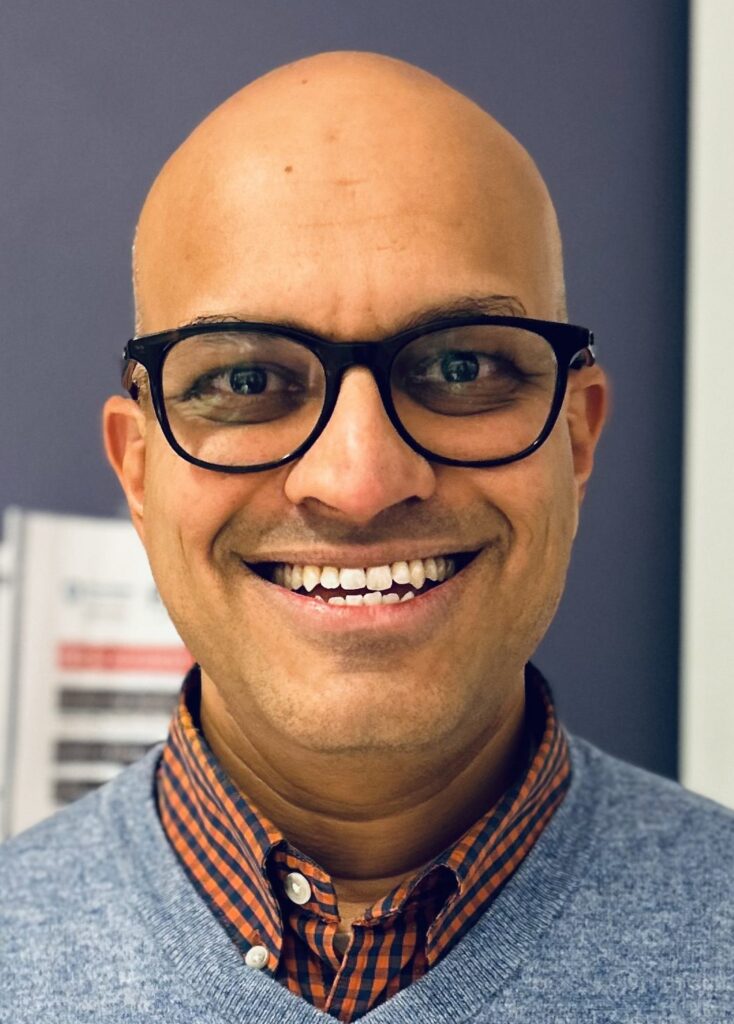Posted By: Kylee Spencer, PhD, Assistant Editor, AJHG
Each month, the editors of The American Journal of Human Genetics interview an author of a recently published paper. This month we check in with Santhosh (@girirajan16) to discuss his recent paper “Assortative mating and parental genetic relatedness contribute to the pathogenicity of variably expressive variants”.
KS: What motivated you to start working on this project?

SG: My lab has been studying the mechanisms underlying the variable expressivity of rare variants in complex disorders like autism and intellectual disability. We observed that affected children inheriting a variably expressive rare variant (such as 16p12.1 deletion) from one parent with mild or subclinical phenotypes also inherited additional rare variants from the other parent. Subsequently, we demonstrated that combinations of variants inherited from both parents contribute to more severe phenotypes in the child. In the context of neuropsychiatric features, Simon Baron-Cohen and, years later, Ashley Nordsletten and others made astute observations about patterns of shared traits suggestive of assortative mating among parents. Based on these studies, discussions in my lab revolved around assortative mating’s potential role in shaping variant patterns in affected children; however, we did not pursue testing this hypothesis at the time. Consequently, this project remained on hold for a while until we were able to make the necessary connections. Notably, I was fortunate to have an exceptional doctoral student, Corrine Smolen, who joined my lab after completing a master’s in human genetics at the University of Michigan. Corrine meticulously assessed clinical and sequencing data from spouses/partners from multiple cohorts ascertained for disease and the general population and created simulated data. I am also grateful to colleagues who contributed to this paper.
KS: What about this paper/project most excites you?
SG: I am very excited that this paper connects several observations we have been making over the years. For example, this work suggests a mechanism for how disease burden accumulates over generations. Also, I was happy that the patterns we found in our initial cohort of families with 16p12.1 deletion were replicated in other cohorts.
KS: Thinking about the bigger picture, what implications do you see from this work for the larger human genetics community?
SG: Our study has significant implications for dissecting the complexity of genetic disorders, providing a framework for how combinations of variants from parents contribute to disease risk in the child. These patterns of different combinations may determine specific disease risks and trajectories. Our study also shows that family history and parental affectedness increase disease liability in the child, so our study is also relevant to genetic counseling.
KS: What advice do you have for trainees/young scientists?
SG: Stay curious. Don’t be afraid to ask questions or challenge established paradigm. Reading work and collaborating with colleagues outside of your immediate area of research, and not fearing to get out of your comfort zone are essential for learning and growth.
KS: And for fun, tell us something about your life outside of the lab.
SG: I spend time with my two sons (aged 10 and 4), building or fixing stuff, occasionally doing a podcast with my older son, or cooking. I also like to read popular books on math, astronomy, and physics, and biographies. I used to be an ardent fan of heavy metal and progressive rock music. All that changed now, my spouse and sons are very much into classical music. I guess, this particular trait didn’t get assorted.
